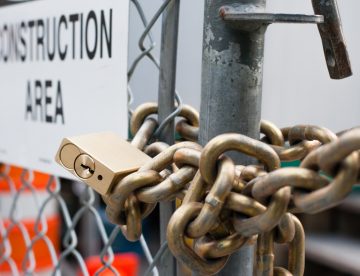
When project deadlines are looming, allowing periods of overtime can be helpful in ensuring everything is completed on time. However, excessive reliance on overtime during any phase of construction can be a telltale sign that something might have gone wrong at the initial planning stage.
So, the question is ‘How can a construction business effectively reduce its reliance on overtime and ensure smoother, more efficient operations?’ Read this week’ blog to explore this subject in more detail.

While some of the mobile apps we download end up doing little but take up space on our phones or tablets, others are revolutionising the way we live and work.
Right now, there are a great many mobile apps that are proving particularly useful for those working in the construction industry – supporting people by making every-day tasks simpler, improving efficiency in working practices and raising professional standards higher than ever before. In this week’s blog, we’ve got a rundown of just some of the apps available.

Research shows that nearly four out of five tradespeople in the UK have experienced tool theft with the estimated cost to the industry coming in at a staggering £2.8 billion.
Because the victims of tool theft are often self-employed, the impact of their individual losses on them, their families, livelihoods and mental health can be devastating. However, the criminals targeting construction sites and trade vans rarely stop to think about such things and so it’s vital that construction companies prioritise and put every effort into site security. In this week’s blog, we’ll look at how big this problem has become and what you can do to protect your site.

Tools and equipment are essential to the effective running of any construction site but, because they are used so much, they can suffer a lot of wear and tear, become damaged and eventually be unusable.
However, with proper care and maintenance, the lifespan of your tools and equipment can be extended and that’s good news for four reasons: 1) Better quality tools means better quality work; 2) It reduces costs related to repairs or replacements; 3) There will be fewer accidents/ injuries from faulty equipment; and 4) It’s better for the environment.
With so much to gain, in this week’s blog, we’re sharing some top tips for how to protect and maintain those tools.

For any construction project, the position of Site Manager (sometimes referred to as Project Manager) is one of the most important. Whoever takes on this role must oversee the day-to-day management of on-site operations from start to finish (including pre-planning) and ensure all tasks are carried out with a focus on three key things – meeting timescales, keeping within budget and performing to the expected quality standards.
There’s no doubting that being a Site Manager is challenging but, as with many job roles, when some thought and time is given to being more effective, things can become easier and more enjoyable. If you’re wondering how to do this, read our blog for our top five tips.

